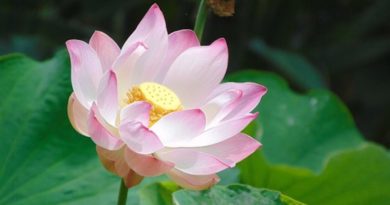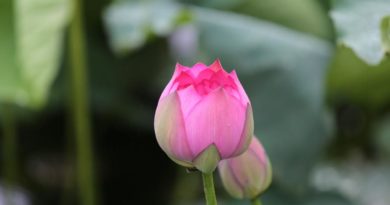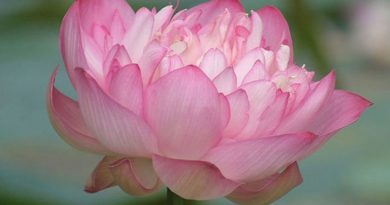Division Ii –– Nidāna Book 17 –– Rāhula Saṃyutta Chapter 2 –– Dutiyo Vagga
Sutta Pitaka
Saṃyutta Nikāya
Division II –– Nidāna
Book 17 –– Rāhula Saṃyutta
Chapter 2 –– Dutiyo Vagga
Namo tassa bhagavato arahato sammā sambuddhassa
17. 2. 1.
(11) Cakkhu –– The Eye
1. I heard thus. At one time the Blessed One was living in the monastery offered by Anāthapiṇḍika in Jeta’s grove in Sāvatthi.
2. Then venerable Rāhula approached the Blessed One worshipped and sat on a side.
3. The Blessed One said thus to venerable Rāhula who was seated on a side:
“Rāhula, is the eye permanent or impermanent?”
“It’s impermanent, venerable sir.”
4. “That which is impermanent is it unpleasant or pleasant?”
“It’s unpleasant, venerable sir.”
5. “That which is impermanent, unpleasant, a changing thing is it suitable to be considered, ‘that is mine, I am that, it’s my self?’”
“That is not so, venerable sir.”
6- 17. “Rāhula, is the ear … re … nose … re … tongue … re … the body … re …
18. Is the mind permanent or impermanent?”
“It’s impermanent, venerable sir.”
19. “That which is impermanent is it unpleasant or pleasant?”
“It’s unpleasant, venerable sir.”
20. “That which is impermanent, unpleasant, a changing thing is it suitable to be considered, ‘that is mine, I am that, it’s my self?’”
“That is not so, venerable sir.”
21. “Rāhula, the noble disciple seeing it thus turns away from the eye, turns away from the ear, turns away from the nose, turns away from the tongue, turns away from the body and turns away from the mind.
22. “Turning away, detaches himself, is dispassionate, and is released. Released, knowledge arises, ‘Birth is destroyed, the holy life is lived, duties are done, there’s nothing more to wish’.”
17. 2. 2.
(12) Rūpaṃ –– Matter
1. In Sāvatthi.
… re … (as above)
3. “Rāhula, are forms … re … sounds, … re … scents … re … tastes … re … touches … re … ideas permanent or impermanent?”… re …
(From paragraph 3. to 20. repeat as in Sutta 17. 2. 1.)
17. 2. 3.
(13) Viññanaṃ –– Consciousness
1. In Sāvatthi.
… re … (as above)
3. Rāhula, is eye consciousness … re … ear consciousness … re … nose consciousness … re … tongue consciousness … re … body conscioussness … re … mind consciousness permanent or impermanent?
(From paragraph 3. to 20. repeat as in Sutta 17. 2. 1.)
17. 2. 4.
(14) Samphassa –– Contact
1. In Sāvatthi.
… re … (as above)
3. Rāhula, is eye contact … re … ear contact … re … nose contact … re … tongue contact … re … body contact … re … mind contact permanent or impermanent?
(From paragraph 3. to 20. repeat as in Sutta 17. 2. 1.)
17. 2. 5.
(15) Vedana –– Feelings
1. In Sāvatthi.
… re … (as above)
3. Rāhula, are feelings born of eye contact … re … feelings born of ear contact … re … feelings born of nose contact … re … feelings born of tongue contact … re … feelings born of body contact … re … feelings born of mind contact permanent or impermanent?
(From paragraph 3. to 20. repeat as in Sutta 17. 2. 1.)
17. 2. 6.
(16) Sañña –– Perceptions
1. In Sāvatthi.
… re … (as above)
3. Rāhula, are perception of forms permanent or impermanent
Perception of ounds, … re … scents … re … tastes … re … touches … re … ideas
(From paragraph 3. to 20. repeat as in Sutta 17. 2. 1.)
17. 2. 7.
(17) Sañcetana –– Perceptions
1. In Sāvatthi.
… re … (as above)
3. Rāhula, are intentions for forms permanent or impermanent
Intentions for sounds, … re … scents … re … tastes … re … touches … re … ideas
(From paragraph 3. to 20. repeat as in Sutta 17. 2. 1.)
17. 2. 8.
(18) Taṇha –– Craving
1. In Sāvatthi.
… re … (as above)
3. Rāhula, is craving for forms permanent or impermanent
Is craving for sounds, … re … scents … re … tastes … re … touches … re … ideas
(From paragraph 3. to 20. repeat as in Sutta 17. 2. 1.)
17. 2. 9.
(19) Dhātu –– Elements
1. In Sāvatthi.
… re … (as above)
3. Rāhula, is the earth element permanent or impermanent?
Is the water element … re … fire element … re … the air element … re …
(From paragraph 3. to 20. repeat as in Sutta 17. 2. 1.)
17. 2. 10.
(10. ) Khandha ––The Masses
1. In Sāvatthi.
… re … (as above)
3. Rāhula, is matter permanent or impermanent?
Are feelings, … re … are perceptions … re … are determineations … re … is consciousness … re …?
(From paragraph 3. to 20. repeat as in Sutta 17. 2. 1.)
17. 2. 11.
(21) Anusaya –– Latent Tendencies
1. I heard thus. At one time the Blessed One was living in the monastery offered by Anāthapiṇḍika in Jeta’s grove in Sāvatthi.
2. Then venerable Rāhula approached the Blessed One worshipped and sat on a side.
3. Sitting on a side venerable Rāhula said to the Blessed One: “Venerable sir, Blessed One, knowing and seeing in which manner do the latent tendencies of measuring in the form of ‘I be’ in this sixfold conscious body and all external signs not occur.”
4. “Rāhula, whatever matter in the past, in the future or at present, internal or external, hard or fine, un -exalted or exalted, far or near, all that matter is not mine, I am not in it and it is not my self. Thus it should be seen as it really is with right wisdom. Rāhula, whatever feelings, … re … perceptions … re … determinations … re … consciousness in the past, in the future or at present, internal or external, hard or fine, un -exalted or exalted, far or near, all that consciousness is not mine, I am not in it and it is not my self. Thus it should be seen as it really is with right wisdom.
5. “Rāhula, to him who knows and sees in this manner the latent tendencies of measuring in the form of ‘I be’ in this sixfold conscious body and all external signs do not occur.”
17. 2. 12.
(22) Apagataṃ –– Gone Away
1. I heard thus. At one time the Blessed One was living in the monastery offered by Anāthapiṇḍika in Jeta’s grove in Sāvatthi.
2. Then venerable Rāhula approached the Blessed One worshipped and sat on a side.
3. Sitting on a side venerable Rāhula said to the Blessed One: “Venerable sir, Blessed One, knowing and seeing in which manner do my latent tendencies of measuring in the form of ‘I be’ in this conscious body and all external signs with an onward drive to have likes, get destroyed completely and am released?”
4. “Rāhula, whatever matter in the past, in the future or at present, internal or external, hard or fine, un -exalted or exalted, far or near, all that matter is not mine, I am not in it and it is not my self.
“Seeing this as it really is, with right wisdom you are released without holding.
5. “Rāhula, whatever feelings, … re …
6. “Whatever perceptions … re …
7. “Whatever determinations … re …
8. “Whatever consciousness in the past, in the future or at present, internal or external, hard or fine, un -exalted or exalted, far or near, all that consciousness is not mine, I am not in it and it is not my self. Thus it should be seen as it really is with right wisdom.
5. “Rāhula, to him who knows and sees in this manner the latent tendencies of measuring in the form of ‘I be’ in this conscious body and all external signs with an onward drive to have likes, get destroyed completely and you are released without holding.”







